Owning a restaurant business is tough. It requires long hours and what can feel like an indefinite hiatus from what used to a more “normal” life. In many cases, it’s not uncommon for restaurant owners to go without paying themselves a full salary — or anything at all — for an extended period of time. Being paid last or not at all is common among restaurant owners, especially during their first years of opening their doors. Even when they achieve break-even, getting paid adequately as an owner can be challenging. But you go into business to reap the benefits of your hard work, right?
Restaurants require time and proper management to be profitable — 18 months on average, which translates to roughly keeping $6,500 worth of profit for every $100,000 in revenues. And with thin margins naturally occurring in a restaurant’s finances, owners should look to pay themselves, but also be wary of paying themselves too much. Here are some tips for restaurant owners to consider when paying themselves, while balancing the needs of both the business and their personal lives.
Structuring Your Business Entity
The way you’ve legally structured your restaurant has different tax implications, which also impacts the different ways you can pay yourself. There are a variety of ways to structure the business, and for restaurants, you’ll typically place yourself into one of the following legal buckets: sole proprietorship, a LLC, a partnership, or a corporation (S or C Corp). Note: For those of you already in business, the original legal structure of your entity is not set in stone and can be changed to fit the needs of your business and life.
For example, if you are a sole proprietor , you can pay yourself as you like, where the profits of your company are seen as the same as your income, and therefore, taxed similar to that of a regular employee. One suggestion is to pay yourself (as owner) a salary on a regular basis. This can also help you to get a clear picture on what it costs to operate the business and what you will be able to retain as personal income.
On the other hand, if you’ve structured your company as an S Corporation, you pay yourself a salary while also deducting normal payroll taxes like FICA and federal taxes. Any remaining profits to the company can be distributed as draws or distributions and are taxed at a lower rate than your salary/income. The S Corp model helps to avoid double taxation: once at the corporate level and once at the individual level. Unlike a sole proprietorship, the profits are not seen as personal income. Rather, they accrue to the corporation and a corporate income tax return must be filed annually. Any pay you receive is seen as personal income, of course.
Make sure to discuss the legal structure of your business with your attorney or tax accountant before making a final decision so you can make sure that you’ve aligned your operations from a legal standpoint and choosing the best tax situation for you.
How Much To Pay Yourself
The IRS suggests to choose a reasonable amount to pay yourself, equating to an “amount that a similar business would pay for the same or similar services.”
Paying yourself just enough to make ends meet will help you to minimize overhead. This in turn helps you to deter the overall amount of funding you need to infuse into your business regularly, thus increasing your net profit. You might have to adjust your personal lifestyle while planning your “bare bones” type of paycheck. For example, you might have a hobby or collection that you need to pause on, only focusing on what’s absolutely necessary for your personal budget to sustain life (rent, groceries, car, etc.). As well, you should be looking at your cash-flow projections to see if you have wiggle room to adjust your salary when needed.

Eventually, you will probably want to pay yourself a salary befitting all of your hard work. Although paying yourself enough to cover your regular living expenses is key, it’s also important to plan for what you want to be paid in the future as your restaurant grows. Doing so is a critical piece of a long-term roadmap to how much capital you’ll need for your business to accommodate salary you desire.
Once you’ve gotten past the break-even point in your business growth, you should also have the ability to accurately measure and forecast your operating costs, allowing you to see what type of earning potential you have for your own paycheck. As the company grows, you can look at increasing your pay in relation to the growth of the business. If the company grows by 20 percent during the first quarter after break-even, for example, you can take your fixed salary and add a 20 percent bonus to it. To calculate your bonus, take your monthly base salary and multiply it by three (3 months in a quarter) and add 20%–this will provide you with the amount of bonus you will award yourself!
Before You Put Those Profits Back Into Your Pocket…
It’s critical to make sure you focus on the net profit, not gross revenue, when determining the amount of money to establish your personal pay with. Make sure you’re still checking the overhead costs of the restaurant and that costs overall are under control. Annual inflation of your overhead is almost certain, and that inflated cost increase will need to come from somewhere, most likely your profits. Nonetheless, annual inflation is important to notate in your financials. This will give you the clearest picture of the sales necessary to operate and obtain the profits you desire (and pay yourself from).
By planning your pay in line with your chosen legal entity and financial statements, you can get a realistic picture of what it will take to earn the paycheck you dreamed of when you first went into business. In many cases, you may find that you’ll have to adjust that number, given the amount of effort, time, and resources it would take to accomplish that initial monetary goal. But however you structure your restaurant and choose to pay yourself, make sure you choose the best situation for you and consult with a professional accountant and/or attorney. Their experience and expertise is invaluable.
Want to sharpen your knowledge of business terms? Here are 10 critical business terms every restaurant owner should know and how they can affect your business decisions:
Rewards Network® does not provide tax, legal, or accounting advice. This material has been prepared for informational purposes only, and is not intended to provide, and should not be relied on for, tax, legal or accounting advice. You should consult your own tax, legal and accounting advisors before engaging in any transaction.






